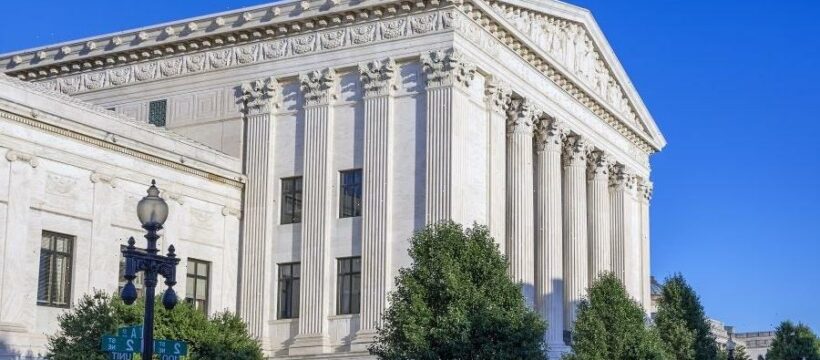In a ruling with unusual and nonpartisan coalitions, the Supreme Court voted 5-4 to temporarily block a Texas social media law with “Justices John Roberts, Brett Kavanaugh, Amy Coney Barrett, Sonia Sotomayor and Stephen Breyer rul[ing] in favor of tech industry groups looking to block the law, with Samuel Alito, Clarence Thomas, Neil Gorsuch and Elena Kagan dissenting.”
H.B. 20 passed the Texas state legislature last September and would have barred “Instagram, Facebook, Twitter and other popular social media sites from blocking content based on viewpoint;” however, [o]pponents immediately challenged it in federal court, winning an injunction suspending it from going into effect.”
In May, after the Fifth Circuit Court of Appeals ruled that the law could immediately go into effect, two trade groups, the Computer & Communications Industry Association (CCIA) and NetChoice, challenged it by filing an emergency application to the high court, writing that “[w]ithout these policies…these websites would become barnacled with slurs, pornography, spam and material harmful to children.”
Texas Governor Greg Abbott insists the law is not a First Amendment violation, but merely a justifiable reaction to “a dangerous movement by social media companies to silence conservative viewpoints and ideas.”
NetChoice counsel Chris Marchese called the law a “constitutional trainwreck….We are relieved that the First Amendment, open internet, and the users who rely on it remain protected from Texas’s unconstitutional overreach.”
Matt Schruers, CCIA President said, “We appreciate the Supreme Court ensuring First Amendment protections, including the right not to be compelled to speak, will be upheld during the legal challenge to Texas’s social media law,” said CCIA President Matt Schruers. “The Supreme Court noting the constitutional risks of this law is important not just for online companies and free speech, but for a key principle for democratic countries.”
While this is only a temporary stay for the law, many are carefully following this case, as it is being “viewed as a bellwether for the social media industry and could determine whether tech platforms have to scale back their content moderation in more than just Texas, and to allow a broad range of material that their terms currently prohibit.”
Indeed, this legal skirmish drew “friend of the court” briefs from advocacy organizations such as the NAACP and Anti-Defamation League who pressed the Court to block the Texas law, arguing that if allowed to be enacted, it would “transform social media platforms into online repositories of vile, graphic, harmful, hateful, and fraudulent content, of no utility to the individuals who currently engage in those communities.”
Tuesday’s ruling comes on the heels of a federal appeals court’s ruling in Florida a few days ago against a similar law. While the Supreme Court’s decision in this case is in no way “a final ruling on the merits of” the law, the case has now been remanded back down to the “district court, where arguments on both sides will be made on the merits.” This simply “means that Texas can’t enforce a new law that would allow Texans and the state’s attorney general to sue tech giants like Meta and YouTube over their content moderation policies.”
Source: Read Full Article

